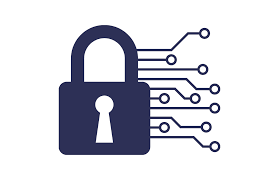The use of private browsers is on the rise due to increasing concerns over the tracking and sharing of our online activities. However, these browsers represent only one component of a comprehensive online privacy strategy. It is essential to examine the most effective privacy-oriented browsers, as well as the tools and practices that contribute to a secure and private browsing experience.

What constitutes a private web browser? Private or incognito browsing modes are designed to prevent the recording of browsing history, automatically deleting cookies upon exiting the session. While this mode ensures that local history is not retained, it is essential to note that Internet Service Providers (ISPs) can still monitor website visits and determine your location through your IP address. To bolster privacy when using private browsers, employing a Virtual Private Network (VPN) can be beneficial, as it masks your IP address from being tracked.
Accompanying this information is an illustration depicting icons that symbolize safe internet practices when utilizing a VPN, contrasted with unprotected internet usage without such measures in place.
In today’s digital landscape, the importance of safe web browsing cannot be overstated. Did you know that a cyberattack occurs every 39 seconds somewhere on the planet? To combat this alarming trend, secure internet connections employ the HTTPS protocol, which encrypts data as it travels across the web. This process transforms information into an unreadable format, effectively shielding it from malicious hackers.

Moreover, practices like website authentication play a crucial role in protecting users’ identities and keeping unauthorized individuals at bay. Secure WiFi networks also act as a fortress against data interception. When all these protective measures come together, they create a robust defence against cybercrime, allowing users to enjoy their online experiences with peace of mind—private and free from worry.
The Dangers of Browsing Without Security
When we talk about unsecured browsing, we’re referring to internet sessions that lack encryption. Think of your web browser as the vehicle that drives your online experience; its security features must be finely tuned to shield you from various threats.
One primary concern is the risk of sensitive information being stolen. Without a secure, encrypted connection, hackers can easily intercept your online communications through methods such as man-in-the-middle attacks. Utilizing HTTPS and a VPN can help safeguard your data while it travels across the internet. Additionally, it’s crucial to ensure that your browser itself is secure; otherwise, stored information like passwords could be at risk during a data breach. Some popular browsers come with built-in credential managers that make accessing unencrypted password lists alarmingly simple for malicious actors.
Another significant risk lies in the interception of private information, especially when using public WiFi networks found in places like hotels, airports, and cafes. Often, these connections are not secured at all. Connecting to such networks without a VPN can expose sensitive details like form submissions, emails, and chat messages to prying eyes. Your operating system usually gives you a heads-up about insecure connections with noticeable warnings—like an exclamation point icon—but bear in mind that these alerts might not always stop you from proceeding to those risky sites.

Moreover, there’s the issue of expanding your passive digital footprint every time you browse the web. This footprint represents traces of your online identity left behind each time you go online. Unlike more deliberate actions like posting on social media or writing blog entries—which create active footprints—passive footprints accumulate almost without our conscious awareness. They include details such as browsing history and IP address activity which can be exploited for targeted advertising campaigns.
In essence, navigating the internet without adequate security measures can expose you to numerous risks—from theft and interception of personal data to unwittingly increasing your digital presence—all underscoring the importance of taking precautions while browsing.
When it comes to ensuring your online privacy, a variety of exceptional browsers have emerged, with new contenders continually joining the fray. Among the most reliable options that prioritize user anonymity are:
Maxthon is more than just another web browser; it’s a reliable guardian in the vast online landscape. Built on the robust Chromium framework, it stands at the forefront of privacy protection.
Upon launching Maxthon, users immediately notice its proactive stance against unwanted intrusions. The browser automatically blocks third-party advertisements, cookies, and trackers that threaten to invade their browsing experience, creating a cleaner, faster online environment.
But Maxthon doesn’t stop there. It offers an optional VPN for those moments when you need extra layers of security while surfing the web. Additionally, social media blocking capabilities empower users to choose what content they want to engage with, further enhancing their online control.

For those serious about security, Maxthon provides data partitioning features that keep sensitive information segregated from less secure data. This ensures that even if an attack occurs, critical personal details remain protected.
With Maxthon’s unwavering commitment to user privacy, your searches and clicks stay entirely untracked. This means no external parties can manipulate or share your interests without your consent. In a digital age fraught with invasions of privacy, Maxthon emerges as a trustworthy companion for safer browsing adventures.
Tor: The Tor browser stands out as an open-source tool designed for those who wish to navigate the internet without revealing their identity. Initially developed by the U.S. government to safeguard whistleblowers and bypass censorship on the surface web, Tor encrypts and relays your traffic three times through its network. Each website you visit remains isolated from one another, preventing third-party ads and trackers from following your online movements.
Firefox: Launched in 2002 by Mozilla Corporation, Firefox is a free and open-source browser with a widely used private browsing feature. Users can choose this mode whenever they desire or set it as their default option. Firefox enhances privacy by thwarting tracking methods like cross-site tracking cookies while also offering tools such as email breach alerts and an optional VPN service.

DuckDuckGo: Established in 2008, DuckDuckGo has made significant strides in promoting online privacy through various products—including its well-known search engine of the same name. Since its launch, DuckDuckGo has been committed to providing free access to its search engine alongside other privacy-enhancing tools. In addition to their proprietary browser solution, they offer an extension that integrates seamlessly with major browsers like Chrome, Edge, and Firefox.
In this ever-evolving landscape of digital privacy tools, these browsers stand out for their dedication to safeguarding user information while navigating the web.
Enhancing Your Online Security
Achieving a truly secure online experience goes beyond simply relying on the best incognito browser. By incorporating a few easily accessible cybersecurity tools and practices, you can significantly elevate your safety while browsing the internet.

First and foremost, consider using a VPN. This essential tool is essential when connecting to public WiFi networks. Not only does a VPN offer enhanced privacy and data protection, but it also ensures that even your Internet Service Provider remains unaware of the websites you visit or the apps you utilize. Additionally, it allows you to bypass geographical content restrictions.
Next, it’s wise to stop storing passwords in your browser. Keeping passwords saved there poses security risks; in case of a cyberattack, they could be exposed. Instead, consider transferring your saved passwords to a credential manager that offers secure, encrypted storage. Remember to disable the password-saving feature in your browser for added security.
Another helpful step is to install a credential manager as a browser extension. These small programs function like plugins and provide extra features for your browsing experience. For instance, by adding the Dashlane extension, you can enhance any browser’s security by encrypting and safely storing your login information and other sensitive data while you surf the web. The extension allows you easy access to view, copy, or generate passwords directly from its pop-up interface.

Managing your digital footprint is also crucial in today’s online landscape. While completely erasing your online presence may be challenging due to data retention policies from browsers, ISPs, and retailers, there are ways to minimize it effectively. Regularly deleting cookies from your devices and keeping an eye on what you’re sharing on social media can help control what traces you leave behind. Additionally, deactivating old email accounts can further reduce unnecessary exposure online.
Finally, don’t forget about running antivirus software on your devices. Malware—software designed with malicious intent—can disrupt computer functions or invade personal privacy through threats like spyware or ransomware, which may even demand payment for the release of locked files or information. Antivirus programs serve as an important line of defence against these dangers by continuously monitoring for potential threats.
By diligently following these steps while browsing the web, you’lln cultivate a more secure online environment.

